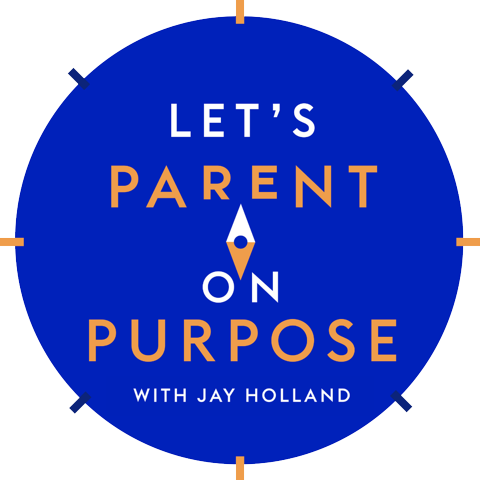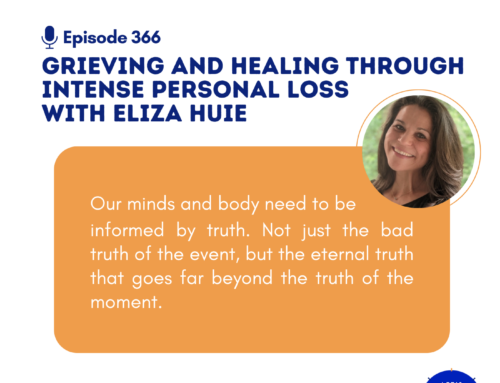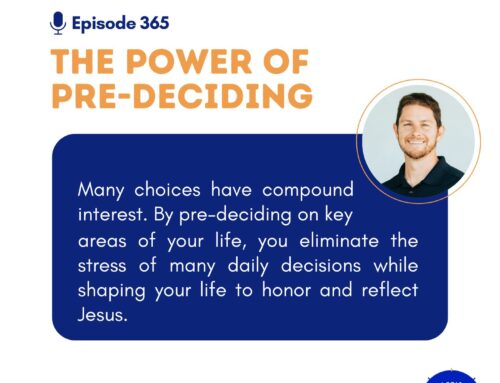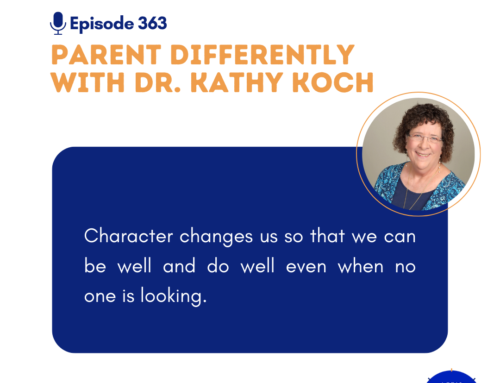As my friend always says, “your habits are perfectly suited to give you the life you are living.” If you want to change your life, change your habits. In this week’s podcast, I share steps for starting, starting, or replacing any habit. Learn to master this in your own life and you will be primed to unleash the power of habit in your family!
This is the second of a three part series I am doing on transformation through intentional habit change. You’re welcome to jump right in to today’s podcast, but if you find it helpful, you’ll want to check out my last episode –The Surprising Power of Small Changes
Show Highlights
Biblical Foundation
Romans 12:2
Do not be conformed to this world, but be transformed by the renewal of your mind, that by testing you may discern what is the will of God, what is good and acceptable and perfect.
Colossians 3:9-10
Do not lie to one another, seeing that you have put off the old self with its practices and have put on the new self, which is being renewed in knowledge after the image of its creator.
Habits are powerful
God wired your body to run on habit.
“Habits reduce cognitive load and free up mental capacity, so you can allocate your attention to other tasks.” James Clear
Habits work like compound interest
Habits are like the atoms of our lives. Each one is a fundamental unit that contributes to your overall improvement. Click To TweetPart of the process of Discipleship is going form accidental to intentional habits.
We don’t choose our earliest habits, we imitate them. Click To Tweet “We don’t choose our earliest habits, we imitate them.” Click To TweetThe 4 Parts of a habit – James Clear
The Cue
The Craving
The Response
The Reward
James Duhigg combines the Cue and Craving to describe a three part Habit Cycle.
“This process within our brains is a three-step loop. First, there is a cue, a trigger that tells your brain to go into automatic mode and which habit to use. Then there is the routine, which can be physical or mental or emotional. Finally, there is a reward, which helps your brain figure out if this particular loop is worth remembering for the future: THE HABIT LOOP”
As time goes on, an interesting thing happens. Your brain starts to associate your response (routine) with the reward. Eventually The Response becomes the Reward!
How to start any habit
Cue – Make it obvious
Craving – Make it Attractive
Response – Make it Easy
Reward – Make it Satisfying
Willpower isn’t just a skill. It’s a muscle, like the muscles in your arms or legs, and it gets tired as it works harder, so there’s less power left over for other things. Click To TweetBreaking a habit – you can’t just stop a habit, you have to replace.
2 practices
Cue – Make it Invisible
Craving – Make it Unattractive
Response – Make it Difficult
Reward – Make it Unsatisfying.
The Golden Rule of Habit Change: You can't extinguish a bad habit, you can only change it. Click To TweetDuhigg’s method
- Identify the cue
- Replace the routine
- Give an immediate reward.
Habit Stacking – pair a new habit with a current habit, or make one habit the cue for the next habbit in a series of habbits
Example – Morning Routine
Wake up
Make Bed
Brush Teeth
Read my verse of the day taped to my mirror
Stretch and breathe
Think and pray through big parts of your day, inviting Jesus in
Shower/get dressed.
Most Powerful Habits for Parents
Lauren Tamm
1. Boundaries – set boundaries to help your kids thrive.
2. Routines – Set routines. This will help the kids stay grounded and self-control and feel relaxed. Morning, mealtime, bedtime
3. Early bedtimes – getting enough sleep helps the kids’ brain development.
4. Empathy –
“Empathy promotes kindness, prosocial behaviors, and moral courage, and it is an effective antidote to bullying, aggression, prejudice and racism. It’s why Forbes urges companies to adopt empathy and perspective-taking principles, the Harvard Business Review named it as one of the ‘essential ingredients for leadership success and excellent performance.'”—Dr. Michele Borba, psychologist and parenting expert.
5. Hugs
“Hugging triggers the release of oxytocin, also known as the love hormone. This feel-good hormone has many important effects on our bodies. One of them is growth stimulation.
Studies show that hugging can instantly boost the level of oxytocin. When oxytocin is increased, several growth hormones, such as insulin-like growth factor-I (IGF-1) and nerve growth factor (NGF), are increased as well. The nurturing touch of a hug can enhance a child’s growth.”—Pamela Li, creator of Parenting for Brain
6. Playful parents – by being playful, we connect to our kids because playing is a way for the kids to connect with other people.
7. Outdoor Times –
“Movement through active free play, especially outside, improves everything from creativity to academic success to emotional stability. Kids who don’t get to do this can have so many issues, from problems with emotional regulation—for example, they cry at the drop of a hat—to trouble holding a pencil, to touching other kids using too much force.”—Meryl Davids Landau, author of Enlightened Parenting
8. Chores – kids with chores are more responsible, have higher self-esteem, able to deal with frustration and delayed gratification better.
9. More screen-time limits –
“In order for the brain’s neural networks to develop normally during the critical period, a child needs specific stimuli from the outside environment. … When a young child spends too much time in front of a screen and not enough getting required stimuli from the real world, her development becomes stunted.”—Dr. Liraz Margalit, Behind Online Behavior
10. Experiences, not things – spend more time with children instead of giving them material things.
11. Slow moving days – take time to watch the kids, appreciate your children.
12. Read books to the kids – a study shows that if you read to the kids, they tend to be more interactive, learn to speak and read faster, empathize, and helps them understand the world around them better.
13. Music –
“Science has shown that when children learn to play music, their brains begin to hear and process sounds that they couldn’t otherwise hear. This helps them develop ‘neurophysiological distinction’ between certain sounds that can aid in literacy, which can translate into improved academic results for kids.”—Time article
14. Family Worship – Pray with your family, read scripture together, sing together. Make it normal for your family to spend time talking about the things of the Lord together.
15. Serve together – church, soup kitchen, old people in neighborhood, nursing home
Romans 12:2
Do not be conformed to this world, but be transformed by the renewal of your mind, that by testing you may discern what is the will of God, what is good and acceptable and perfect.
I want to hear from you!
Reach out to me and let me know what you think!
www.facebook.com/letsparentonpurpose
www.instagram.com/letsparentonpurpose
Resources Mentioned
The Power of Habit by Charles Duhigg
Oxytocin: Facts About the ‘Cuddle Hormone’
If you like this episode, check out last week’s podcast Creating a Summer Growth Plan with my friend Brent Gibson
You might also like one of my blogs The Best Habit You Can Learn This Year






